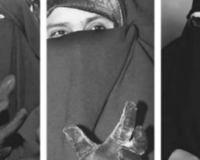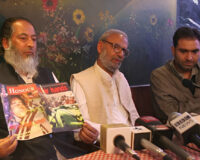Defiant Geelani; 11 Years of relentless siege.
Syed Ali Geelani is a central vanguard in Kashmir’s “War of Liberation” movement. Born and brought up in northern Kashmir’s Bandipora district in September 1929, Geelani’s life is embedded with incitement, fascination and inspiration. His long, unfaltering stance on the Kashmir resistance for Liberation, over the years, has earned him the title of “The Leader…










